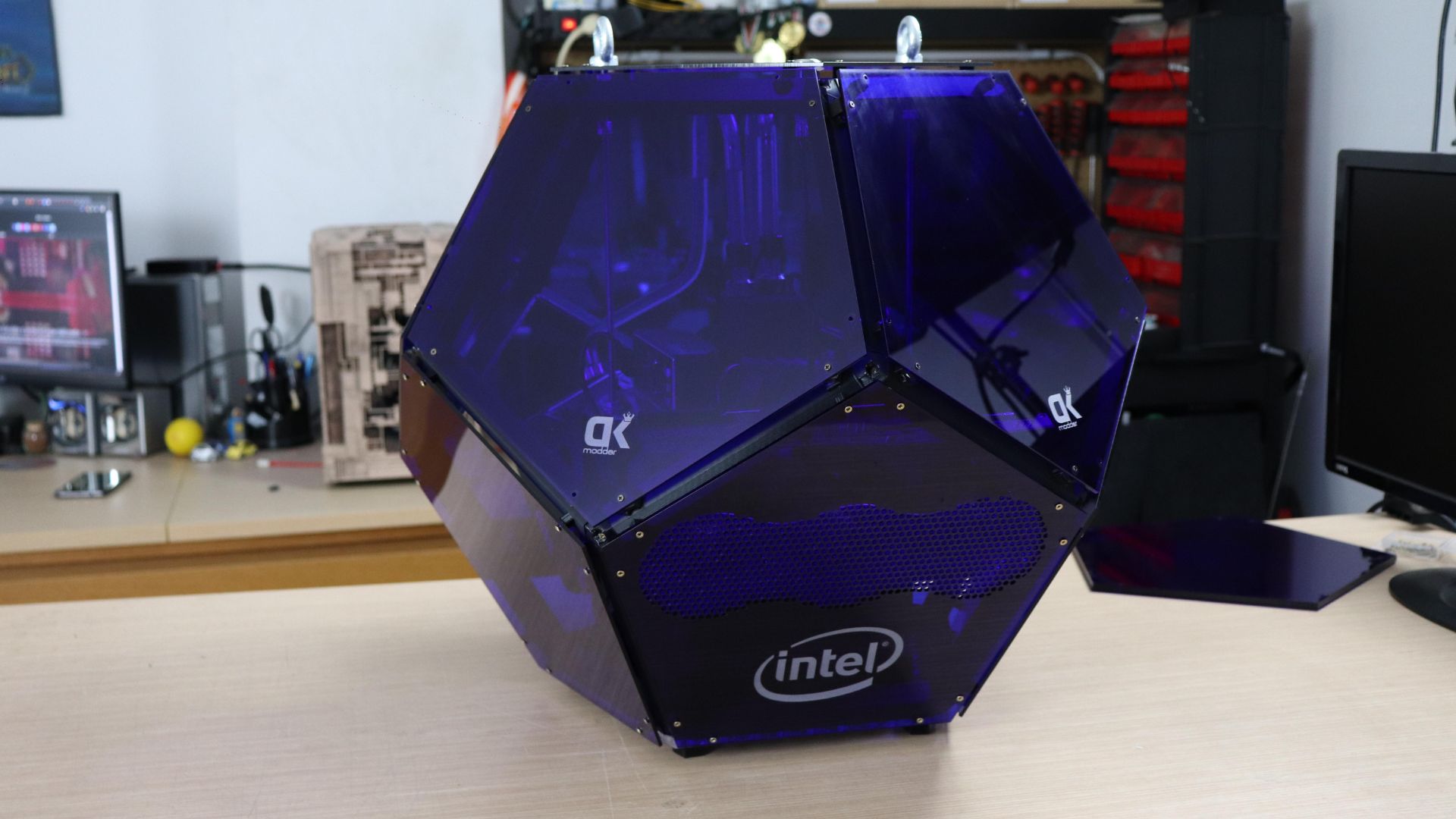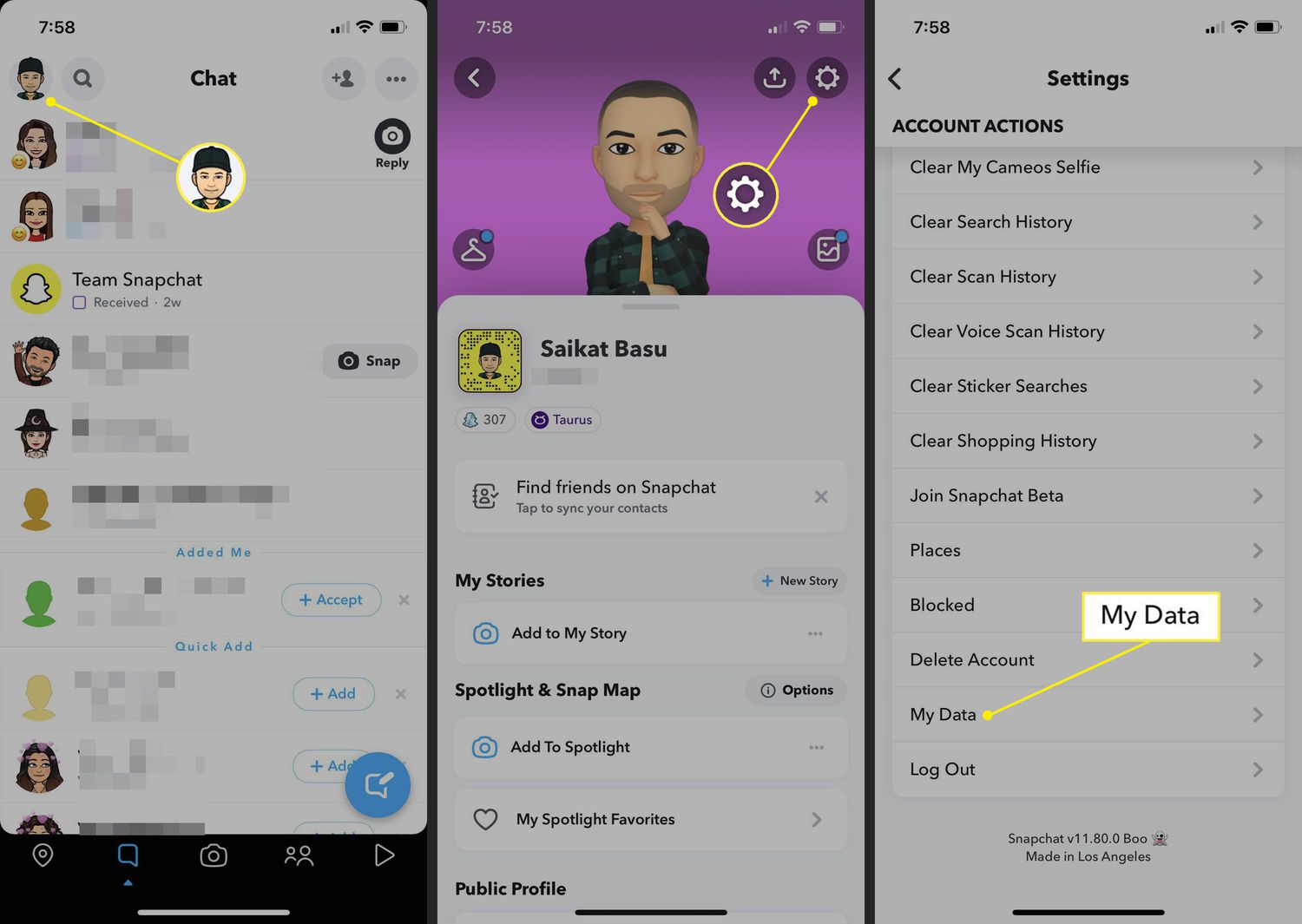Introduction
Online gaming has become a widespread phenomenon, captivating the attention of millions of people around the world. With the evolution of technology and the accessibility of the internet, gaming has shifted from a solo activity to a thriving community of players who connect and compete with one another in virtual realms. But how exactly does online gaming work? In this article, we will delve into the intricacies of online gaming, exploring its mechanics, platforms, and social aspects.
Online gaming refers to the act of playing video games over the internet. Unlike traditional gaming, where individuals would play on their own or with friends via local multiplayer, online gaming opens up a world of possibilities by allowing players to engage with a global audience. Whether you’re battling it out in a virtual warzone, collaborating with teammates to complete quests, or participating in an e-sports tournament, online gaming offers a dynamic and immersive experience that continues to enthrall players of all ages.
The mechanics of online gaming revolve around the seamless integration of technology, internet connectivity, and gaming platforms. Players can access online games through various platforms, such as gaming consoles, personal computers, or even mobile devices. These platforms act as gateways to virtual worlds, allowing players to interact and engage with the game’s environment and other players in real-time.
Whether you’re playing a massively multiplayer online role-playing game (MMORPG), a first-person shooter, a strategy game, or any other genre, the fundamental concept remains the same. Players utilize their gaming platform to connect to servers where the game is hosted, enabling them to join a game session with other players from around the world. This connection is facilitated by the internet, which enables real-time communication and synchronization of game data between players.
Online gaming offers a wide range of platforms to choose from, including dedicated gaming consoles like the PlayStation, Xbox, and Nintendo Switch, as well as popular gaming distribution platforms such as Steam, Epic Games Store, and GOG. Additionally, many games have their own dedicated launchers, which act as a hub for accessing and managing the game. Each platform has its own interface, community features, and unique aspects that enhance the gaming experience.
In the following sections, we will explore the different types of online gaming platforms, the role of internet connectivity, the social aspects of online gaming communities, and the revenue and monetization models employed in this thriving industry. By the end, you will have a comprehensive understanding of how online gaming works and the numerous opportunities it offers for individuals to connect, compete, and immerse themselves in captivating virtual worlds.
What is online gaming?
Online gaming is a form of interactive entertainment that allows players to connect and compete with each other through the internet. It involves playing video games on a variety of platforms, such as gaming consoles, computers, or mobile devices, while being connected to a network of other players from around the world.
Unlike traditional single-player games, online gaming offers a dynamic and social experience by enabling players to engage with a global community of fellow gamers. It provides an immersive environment where players can collaborate, compete, and communicate in real-time, enhancing the overall gaming experience.
The scope of online gaming is broad, encompassing various genres, including action, adventure, role-playing, sports, strategy, and more. Players can choose from a wide range of game options, each offering unique gameplay mechanics, storylines, and objectives.
One of the key features that sets online gaming apart is the multiplayer aspect. Whether it’s teaming up with friends, joining a guild, or participating in competitive tournaments, online gaming allows players to interact with others in the virtual world. This social element fosters a sense of community and fosters connections among gamers with shared interests and passions.
Online gaming has also evolved to incorporate advanced features and technologies that further enhance the gameplay experience. Many online games have dedicated servers that ensure stable and reliable connections, reducing lag and latency issues. Additionally, advancements in graphics and audio technologies have made the virtual worlds more visually stunning and immersive, captivating players in a lifelike gaming experience.
Furthermore, online gaming offers various modes of play, catering to different preferences and playstyles. Whether players prefer cooperative gameplay, where they work together to achieve a common goal, or competitive gameplay, where they face off against each other in intense battles, online gaming provides options for every type of gamer.
It’s worth noting that online gaming is not limited to just individual experiences. Many online games feature expansive virtual worlds where players can explore, complete quests, and make their mark on the game’s universe. These massive multiplayer online games (MMOGs) often involve thousands of players sharing the same virtual space, creating a living and ever-evolving environment.
In summary, online gaming offers an immersive and interactive entertainment experience that connects players from all corners of the globe. Through various platforms, multiplayer functionality, and a wide range of game genres, it continues to captivate millions of individuals who seek thrilling adventures, engaging challenges, and meaningful connections in the virtual world. Whether you’re a casual player or a dedicated e-sports enthusiast, online gaming provides endless opportunities for enjoyment, competition, and exploration.
How does online gaming work?
Online gaming relies on the seamless integration of technology, internet connectivity, and gaming platforms to create an immersive and interactive experience for players. The process involves several key components working together to enable players to connect, interact, and compete with each other in virtual worlds.
When a player initiates an online game, their gaming platform, such as a console or computer, connects to a server that hosts the game. This server acts as a central hub where all the game data is stored and managed. It facilitates communication and synchronization between the players, allowing them to interact in real-time.
Internet connectivity plays a vital role in online gaming. A stable and reliable internet connection is necessary for players to access the game servers and remain connected throughout their gameplay sessions. The speed and quality of the connection can impact the overall gaming experience, as a poor connection can result in lag, latency, and disruptions in gameplay.
Once connected to the game server, players can either choose to play cooperatively with others, forming teams to achieve common goals, or compete against each other in various game modes. The server acts as a mediator, ensuring that all players in a session receive the necessary updates and information in real-time.
Game servers also handle matchmaking, which is the process of pairing players of similar skill levels or preferences together. This ensures a fair and balanced gameplay experience, providing players with opponents or teammates that match their abilities or playstyles. Matchmaking algorithms take into account factors such as player rankings, skill ratings, or desired game modes to create optimal gaming sessions.
To facilitate communication between players, online games often include chat and voice communication features. These features allow players to strategize, coordinate, and socialize during gameplay. Whether it’s exchanging text messages, using voice chat, or joining virtual group chats, these communication tools enable players to connect and collaborate with others.
Online gaming also offers the opportunity for players to customize and personalize their gaming experiences. Many games feature character creation systems where players can design unique avatars, choosing from a wide range of appearances, abilities, and playstyles. These personalized characters become the players’ virtual representations in the game world, allowing them to express themselves and stand out among others.
Overall, online gaming is a complex ecosystem that relies on technology, internet connectivity, and player interaction to create a dynamic and immersive experience. The integration of servers, matchmaking systems, communication features, and personalization options ensures that players can connect, compete, and collaborate with others seamlessly, making online gaming a captivating and socially engaging form of entertainment.
Types of online gaming platforms
Online gaming has evolved to encompass various platforms that cater to different preferences and gaming experiences. Here, we explore some of the common types of platforms that enable players to access and enjoy online games.
Gaming Consoles: Dedicated gaming consoles like the PlayStation, Xbox, and Nintendo Switch have revolutionized the gaming industry. These platforms offer powerful hardware, user-friendly interfaces, and exclusive game titles that provide immersive online gaming experiences. Console manufacturers often provide online services, such as Xbox Live and PlayStation Network. These services allow players to connect to the internet, access multiplayer functionality, and communicate with other players.
Personal Computers: PCs have long been a staple in the gaming world. With their flexibility, power, and accessibility, PCs offer a vast library of online games across various genres. Online gaming on PCs is facilitated through gaming distribution platforms, such as Steam, Epic Games Store, and GOG, which provide a centralized location to purchase, download, and manage games. These platforms often feature community forums, user reviews, and social features that enhance the online gaming experience.
Mobile Devices: The rise of smartphones and tablets has made online gaming more accessible than ever. Mobile gaming platforms, such as iOS and Android, offer a plethora of online games that can be easily downloaded and played on the go. These games range from casual puzzle games to immersive multiplayer experiences. Additionally, mobile devices support social features, such as in-game chat, leaderboards, and multiplayer matchmaking, enabling players to connect and compete with others.
Web Browsers: Web-based gaming platforms have gained popularity due to their convenience and simplicity. These platforms allow players to access and play online games directly from their web browsers, eliminating the need for downloads or installations. Web-based games often range from casual browser games to complex multiplayer experiences, catering to a wide range of preferences.
Cloud Gaming: Cloud gaming platforms, like Google Stadia, GeForce Now, and Xbox Cloud Gaming (formerly known as Project xCloud), have emerged as a promising trend in online gaming. These platforms stream games directly to the player’s device over the internet, removing the need for powerful local hardware. Cloud gaming provides flexibility and accessibility, allowing players to access high-quality games on a variety of devices, including smartphones, tablets, and low-end computers.
Game-Specific Launchers: Many online games have their own dedicated launchers, acting as centralized hubs for players to access and manage the game. These launchers often offer additional features, such as news updates, social integration, and in-game purchases. Popular examples include Blizzard’s Battle.net launcher, EA’s Origin launcher, and Ubisoft’s Uplay launcher.
The choice of an online gaming platform often depends on personal preferences, available hardware, and the games one wishes to play. Each platform offers unique features, communities, and game libraries, ensuring that players can find their preferred online gaming experience on their platform of choice. From consoles to PCs, mobile devices, web browsers, and cloud gaming, the diverse range of platforms caters to the varied interests and gaming needs of a global audience.
Role of internet connection in online gaming
Internet connectivity plays a crucial role in online gaming, as it forms the foundation for players to connect, interact, and engage with others in virtual gaming worlds. The quality and stability of the internet connection directly impact the overall gaming experience, affecting factors such as gameplay performance, responsiveness, and communication.
One of the primary requirements for online gaming is a reliable and high-speed internet connection. A stable connection ensures that players can maintain a consistent connection to the game servers and reduces the risk of disconnections, lag, and latency. An unstable or slow internet connection can result in poor gameplay performance, causing delays, stuttering, and disruptions in real-time interactions.
Internet speed, commonly measured in megabits per second (Mbps), is a critical factor in determining the quality of online gaming. Games with fast-paced action, large player counts, and high graphical fidelity may require higher internet speeds to ensure smooth and responsive gameplay. Lower speeds can lead to delays in rendering game assets, resulting in lag and a less enjoyable gaming experience.
Ping, commonly measured in milliseconds (ms), is another crucial aspect of online gaming. Ping refers to the round-trip time it takes for data packets to travel between the player’s device and the game server. A lower ping indicates a more responsive connection and quicker communication between the player and the server. Higher ping can result in delayed input responses and synchronization issues, negatively impacting gameplay.
Online gaming also demands a stable internet connection to maintain real-time communication with other players. Voice chat, text messaging, and other forms of in-game communication rely on a constant stream of data transmission. A fluctuating or unreliable connection can result in distorted or dropped communication, hindering effective teamwork and coordination among players.
Furthermore, the role of internet connection extends beyond gameplay performance. Online gaming often requires regular updates, patches, and downloads, which can be substantial in size. A high-speed and stable connection ensures efficient downloading and updating processes, minimizing wait times and allowing players to quickly access the latest content and bug fixes.
It’s important to note that internet connection requirements may vary depending on the specific online game and platform. Some games may require more bandwidth and lower latency, while others may be more forgiving. It’s recommended for players to check the system requirements and internet recommendations provided by the game developers to ensure an optimal gaming experience.
In summary, the role of internet connection in online gaming is vital. It serves as the foundation for players to connect to game servers, interact with other players, and experience seamless gameplay. A reliable and high-speed internet connection enhances gameplay performance, facilitates real-time communication, and ensures efficient downloading and updating processes. With the advancement of technology and the increasing demands of online gaming, a stable and fast internet connection has become essential for players to fully immerse themselves in the captivating virtual worlds of online gaming.
Multiplayer online games
Multiplayer online games have revolutionized the gaming industry by offering dynamic and engaging experiences that allow players to collaborate, compete, and socialize with others in virtual realms. These games immerse players in vast, interconnected worlds where they can interact with thousands, if not millions, of other players from around the globe.
One of the primary appeals of multiplayer online games is the opportunity to engage in cooperative gameplay. Players can join forces, forming teams or guilds to tackle challenges, complete quests, and overcome formidable foes. Cooperating with others not only enhances the gameplay experience but also fosters a sense of camaraderie and teamwork among players who share a common objective.
Competitive gameplay is another integral aspect of multiplayer online games. From intense player-versus-player battles to e-sports tournaments, these games offer thrilling opportunities for players to showcase their skills and compete for recognition and rewards. Competitive multiplayer games often feature leaderboards, rankings, and matchmaking systems, ensuring fair and balanced matchups that provide challenging and exciting experiences for players.
Social interaction is a central component of multiplayer online games. Built-in chat systems, voice communication tools, and social features enable players to communicate, coordinate strategies, and form connections with others. Online gaming communities often develop within these games, creating spaces for players to meet new friends, join like-minded groups, and share their gaming experiences.
Many multiplayer online games provide various activities beyond traditional quests and battles. Players can engage in player-driven economies, where they buy, sell, and trade in-game items and resources. Some games offer customization options, allowing players to personalize their characters, homes, or virtual spaces. Additionally, online events, seasonal celebrations, and in-game festivals foster a sense of immersion and excitement, encouraging players to return and experience new content.
Massively multiplayer online role-playing games (MMORPGs) are a popular genre within multiplayer online games. These games feature large-scale virtual worlds filled with quests, stories, and character progression. Players can create their own avatars, navigate intricate narratives, and join forces with others to conquer powerful foes or embark on epic adventures. MMORPGs often encourage social interaction, creating opportunities for players to form long-lasting friendships and engage in collaborative gameplay.
Advancements in technology have further enhanced the multiplayer online gaming experience. Voice chat, built-in social media integration, and cross-platform play have all contributed to the seamless connectivity between players across different devices and platforms. This connectivity has transcended geographical boundaries, allowing players from different cultures and backgrounds to come together and share their passion for gaming.
In summary, multiplayer online games have transformed gaming into a social and interactive experience. Whether through cooperative gameplay, competitive challenges, or social interactions, these games offer a diverse range of experiences that cater to players’ preferences and playstyles. The ability to join forces or compete against a global community of players creates a sense of immersion, camaraderie, and endless opportunities for exploration and enjoyment. Multiplayer online games have become a worldwide phenomenon, engaging millions of players and shaping the future of the gaming industry.
How to get started with online gaming
Getting started with online gaming can be an exciting and immersive experience. Whether you’re new to gaming or looking to explore the vast world of online multiplayer games, here are some steps to help you get started and dive into the captivating realm of online gaming.
1. Choose your gaming platform: Selecting the right gaming platform is the first step in getting started with online gaming. Consider factors such as your budget, preferred gaming genres, and available hardware. Gaming consoles, personal computers, and mobile devices all offer online gaming capabilities, each with its own unique features and game libraries.
2. Research and choose your game: Once you have selected your platform, research different online games that align with your interests and preferences. Read reviews, watch gameplay videos, and check out forums or communities to get a better understanding of the game and its community. Choose a game that captivates you and offers the experience you are seeking, whether it’s cooperative play, competitive challenges, or immersive storytelling.
3. Create your gaming account: Most online games require players to create a gaming account. Follow the prompts on the game’s website or platform to create your account. Provide the necessary information, such as a username, email address, and password. Some games may require additional verification steps, such as linking your account to a valid email address or mobile number.
4. Set up your gaming platform: Depending on your gaming platform, you may need to set up and configure your hardware or software. Install any necessary drivers, updates, or gaming clients to ensure optimal performance and compatibility. Familiarize yourself with the platform’s user interface and settings to customize your gaming experience according to your preferences.
5. Learn the game mechanics and controls: Once you have chosen your game, take some time to learn its mechanics and controls. Many games offer tutorials or beginner-friendly modes to help you get accustomed to the gameplay. Experiment with different settings, controls, and configurations to find what works best for you. Don’t be afraid to ask for help or seek out online resources, such as forums or community guides, if you need assistance.
6. Connect with others: Online gaming is all about connecting with other players. Take advantage of in-game communication features, such as chat or voice chat, to engage with other players. Join online communities, forums, or social media groups related to your game to meet new friends, find teammates, and share your gaming experiences. Many games also have dedicated multiplayer modes or matchmaking systems that allow you to team up or compete against other players.
7. Respect gaming etiquette: When diving into the online gaming world, it’s important to be respectful and considerate towards other players. Follow the game’s rules and guidelines, and treat fellow gamers with kindness and sportsmanship. Remember that online gaming is a shared experience, and fostering a positive and inclusive community benefits everyone.
8. Keep learning and exploring: Online gaming is a constantly evolving world with new updates, features, and content. Embrace the opportunity to continue learning and exploring the game’s universe. Participate in events, complete quests or challenges, and stay updated on game news and updates. This will ensure that you have a fulfilling and enriching online gaming experience.
By following these steps, you will be well on your way to embarking on an exciting online gaming journey. Remember to have fun, be open to new experiences, and enjoy the immersive and social aspects of online gaming. Whether you’re looking for thrilling adventures, competitive battles, or new friendships, online gaming offers a world of possibilities to explore and enjoy.
Chat and communication features in online gaming
Online gaming is more than just playing games; it’s about connecting and communicating with fellow players. Chat and communication features play a vital role in facilitating social interaction, strategy coordination, and community building within online games. These features enable players to engage in real-time conversations, collaborate with teammates, and establish connections that enhance the overall gaming experience.
Text Chat: Text chat is one of the most common communication methods in online gaming. It allows players to send and receive text messages in real-time. Text chat can be used for a variety of purposes, such as coordinating strategies, sharing information, or simply socializing. Many games offer different types of text chat channels, including global chat for all players, team chat for specific teams or groups, and private messages for one-on-one conversations.
Voice Chat: Voice chat is a popular communication feature that provides a more immersive and immediate way for players to communicate. It allows players to converse with each other using their voices, eliminating the need for typing. Voice chat is particularly useful in fast-paced games where quick communication is essential for teamwork and coordination. It promotes real-time interaction, enhances the gaming experience, and fosters a sense of camaraderie among players.
Group and Guild Chat: Many online games feature group or guild chat channels specifically designed for communication within organized groups or guilds. These channels allow members of a group or guild to communicate privately and efficiently. Group chat enables players to coordinate strategies, discuss tactics, and plan their actions in real-time, enhancing cooperation and teamwork. It also serves as a platform for members to socialize and build stronger bonds within the group or guild.
Emotes and Gestures: In addition to traditional text and voice chat, games often include emotes and gestures that allow players to express themselves non-verbally. These are pre-defined animations or actions that can convey emotions, reactions, or intentions. Emotes and gestures can range from simple wave or dance animations to complex gestures that reflect specific gameplay mechanics. They provide another layer of communication and allow players to interact with others in a fun and expressive way.
Social Features: Online games often include social features that go beyond direct communication. These features can include friend lists, follower systems, in-game mail systems, and notifications. These social features enable players to stay connected with their gaming friends, receive updates on activities, and maintain a sense of community even outside of the game. Social features facilitate the growth of online gaming communities and provide platforms for players to build relationships and support networks.
Moderation and Safety: To maintain a positive and safe gaming environment, many online games have moderation systems in place. These systems help enforce community guidelines, prevent harassment, and protect players from inappropriate behavior. Moderators and automated filtering mechanisms monitor chat and communication channels, ensuring that the gaming community remains welcoming and enjoyable for all players.
Chat and communication features in online gaming promote social interaction, teamwork, and collaboration. They enable players to strategize, share knowledge, and form connections that go beyond the boundaries of the game. By facilitating real-time conversations, providing various chat channels, and incorporating social features, online games create engaging and inclusive environments where players can communicate, build communities, and forge friendships. Effective communication enhances the gaming experience, fosters a sense of belonging, and makes online gaming a truly social and immersive experience.
Online gaming communities and social aspects
Online gaming communities have blossomed into vibrant and active spaces where players from all walks of life come together to share their passion for gaming. These communities foster social connections, provide support networks, and create opportunities for collaboration and engagement beyond the confines of the game itself. With the rise of online multiplayer games, the social aspects of online gaming have become an integral part of the overall experience.
Shared interests and camaraderie: Online gaming communities bring together individuals who share a common interest in a particular game or gaming genre. Players can connect with like-minded individuals who understand their love for the game and can relate to their experiences. This shared passion fosters a sense of camaraderie, creating a supportive environment where players can celebrate achievements, share strategies, and engage in discussions about their favorite games.
Collaboration and teamwork: Multiplayer online games thrive on collaboration and teamwork. Online gaming communities provide platforms for players to find teammates, form in-game groups, or join guilds. These collaborations facilitate cooperation, allowing players to pool their skills and resources to overcome challenges and achieve shared goals. By working together, players can tackle difficult quests, conquer formidable foes, and enjoy the satisfaction of shared accomplishments.
Socializing and building friendships: Online gaming communities offer opportunities for players to socialize and build friendships. Whether it’s in-game text chat, voice communication, or dedicated community forums, players can connect with others, discuss shared interests, and form meaningful relationships. Through constant interaction and shared experiences, these virtual friendships can often transcend the boundaries of the game and extend into real-life connections.
Support networks and sharing experiences: Online gaming communities serve as support networks for players facing challenges within or outside of the game. Communities provide a platform for players to seek advice, help others with game-related queries, or share personal experiences. From troubleshooting technical issues to discussing gameplay strategies, players can rely on the knowledge and expertise of the community to navigate obstacles and enhance their gaming experience.
Competitive spirit and e-sports: Online gaming communities are also at the forefront of the competitive gaming scene. E-sports tournaments, organized by these communities or game developers, bring together teams and players from around the world to compete at the highest level. These events not only showcase skill and talent but also foster a sense of community and create new opportunities for professional players, commentators, and content creators within the gaming industry.
Content creation and sharing: Online gaming communities inspire creativity and content creation. Players create and share game-related content such as videos, live streams, fan art, and guides. These contributions enrich the community and provide platforms for players to showcase their talents, entertain others, and contribute to the overall gaming experience. Streaming platforms like Twitch and YouTube have further amplified the reach of gaming content, allowing players to build their own dedicated fan bases.
Online gaming communities have become a melting pot of diverse individuals, united under a shared love for gaming. These communities transcend geographical boundaries and cultural differences, connecting players from various backgrounds and fostering a sense of global connection. Online gaming communities provide a sense of belonging, camaraderie, and support, creating an environment in which players can truly immerse themselves, grow, and create lasting friendships.
Revenue and monetization in online gaming
Online gaming has become a lucrative industry, generating significant revenue through various monetization strategies. Game developers and publishers employ a range of models to sustain their products, provide ongoing support and updates, and continue delivering engaging experiences to players. Understanding the revenue and monetization methods in online gaming is essential to grasp the ecosystem surrounding these games.
Purchase-based revenue models: Many online games operate on a purchase-based revenue model. Players are required to buy the game upfront, gaining access to the full experience. This model is commonly seen in single-player online games or self-contained multiplayer games. Additionally, game expansions, downloadable content (DLC), or season passes may offer additional content for purchase to extend the gameplay experience.
Subscription-based revenue models: Some online games rely on subscription-based revenue models. Players pay a recurring fee, typically on a monthly or yearly basis, to access and enjoy the game. This model grants players continuous access to the game, along with additional benefits such as exclusive content, priority support, or in-game bonuses. Subscription-based models often offer a stable source of revenue for game developers, ensuring ongoing updates and servicing of the game.
Free-to-play and freemium revenue models: Free-to-play (F2P) is a popular revenue model in which players can access and play the game for free. However, revenue is generated through optional in-game purchases, such as cosmetic items, virtual currency, or additional content. This model allows players to enjoy the game at no cost while offering the option to support the developers through microtransactions. The freemium model is a variation of F2P, where some premium features or content are behind a paywall, providing players with an enhanced experience for a fee.
In-game purchases and microtransactions: In-game purchases, often referred to as microtransactions, have become a significant source of revenue for online games. These purchases include cosmetic items, character customization options, virtual currency, loot boxes, or in-game boosts. While they are typically optional, they allow players to personalize their gaming experience or progress more quickly in the game. Microtransactions have sparked debates around their potential impacts on game balance and addictive tendencies, but they remain a prevalent monetization method in online gaming.
Advertising and sponsorships: Advertising and sponsorships contribute to the revenue stream for certain online games, particularly free-to-play games. In-game ads, sponsorships of in-game events, or partnerships with real-world brands can provide additional income for developers. Advertisements can be incorporated within the game environment or offered as rewards for watching video content. These advertising and sponsorship deals help offset development costs and make the game accessible to a wider audience.
E-sports and competitive gaming: E-sports has emerged as a significant revenue generator in online gaming. Competitive gaming events, tournaments, and leagues attract massive audiences, garnering sponsorships, ad revenue, and media rights deals. Prize pools for high-profile e-sports competitions can reach millions of dollars, offering lucrative opportunities for professional players, teams, and organizers. Additionally, merchandise sales, ticket sales for live events, and streaming platform partnerships contribute to the revenue associated with e-sports.
Licensing and partnerships: Online gaming often ventures into cross-promotions, collaborations, and licensing agreements with other brands or intellectual properties. This includes partnerships with film studios, music artists, or well-known franchises. Such collaborations allow developers to attract a broader audience and generate additional revenue through licensing fees, in-game events, or themed content updates.
In summary, the revenue and monetization methods in online gaming have evolved to support the ongoing development and sustainability of these games. Purchase-based models, subscriptions, free-to-play models with in-game purchases, advertising, and e-sports all contribute to the financial success of the industry. Developers continue to explore new and innovative ways to generate revenue while ensuring a balanced and enjoyable experience for players. Understanding the monetization landscape helps players appreciate the intricacies of game development and supports the growth and evolution of the online gaming industry.
Conclusion
Online gaming has revolutionized the world of entertainment, bringing people together from all corners of the globe to participate in immersive and social gaming experiences. Through various platforms, multiplayer functionality, and communication features, online gaming has created a virtual playground where gamers can connect, collaborate, and compete with one another.
The advancement of technology, internet connectivity, and game development has made online gaming more accessible and engaging than ever before. Whether playing on gaming consoles, personal computers, or mobile devices, players can explore vast virtual worlds, join forces with teammates, or challenge opponents in intense battles. The social aspects of online gaming, including chat features and online communities, further enhance the experience by fostering friendships, providing support networks, and encouraging collaboration.
Monetization models in online gaming have evolved to sustain the development and continued support of these games. From purchase-based models and subscriptions to free-to-play with in-game purchases, developers have found ways to generate revenue while offering players a range of options to choose from. Advertising, e-sports, and partnerships with other brands have also played a significant role in monetizing online games and expanding the gaming industry.
As online gaming continues to grow and evolve, it is important for players to stay mindful of healthy gaming habits and etiquette. Building positive and inclusive communities, supporting fair competition, and being responsible digital citizens are essential to creating an enjoyable and sustainable gaming environment.
In conclusion, online gaming has transformed the way people play and connect. It has created a global community where individuals can share their love for gaming, collaborate with others, and build lasting friendships. With constant advancements in technology and evolving revenue models, online gaming is poised to continue captivating players and shaping the landscape of the gaming industry for years to come. Embrace the world of online gaming, explore new virtual worlds, and immerse yourself in the endless possibilities that await. Happy gaming!

























